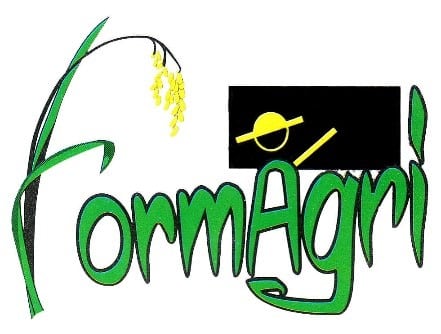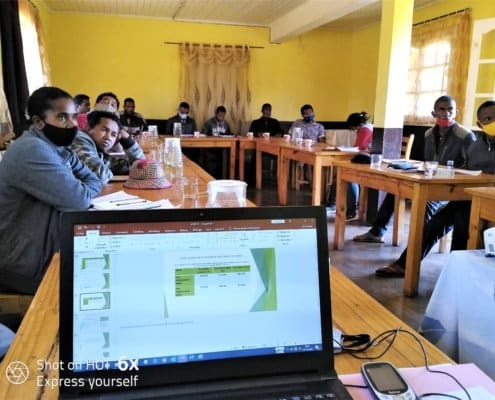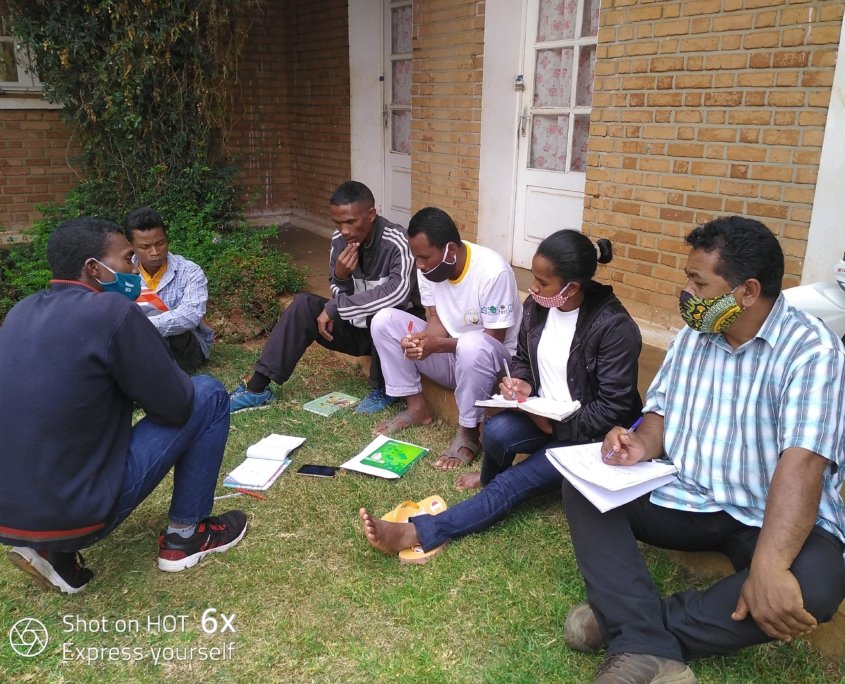In September 2020, Formagri, a Malagasy association for the training of agricultural leaders has reopened its Farmers’ University in a renovated form, after a long period of waiting for agricultural leaders.
Formagri is an association created in 1993 under the impulse of the Fifata group and Fert. Its objective was to train the elected members of national farmers’ organizations. In 2007, the association ceased its activity following governance and financing difficulties.
In response to the growing demand from Malagasy elected farmers, a training program for farmer leaders (FLP) was launched in 2012. But this program is training Fifata’s farmer leaders from the grassroots to the national level. So in 2020, the Fifata group asked Fert to support the revival of the Formagri association and thus complete its training course. This revival also benefited from the support of the Agence Française de Développement.
Formagri is now composed of elected farmers representing the six Malagasy farmers’ organizations and is chaired by a member of the Fifata Board of Directors.
A complete training
Today, two promotions are engaged in the training program (six one-week sessions). The first class has already completed three sessions and is preparing to participate in the fourth on February 15 and the second will begin its third session on March 1. Each class has a mix of leaders and agricultural managers.
To strengthen their civic knowledge, which is essential to public debate, seven themes have already been explored.
Related to their future role as national leaders, they cover: knowledge of the country, cultural invariants, wealth creation, the structuring of the rural sector, the origin and use of the Malagasy State’s resources, the State and the role of its institutions, and the main laws that impact agriculture
Practice advocacy on behalf of farmers
But the Farmers’ University is not only a place to bring knowledge. It is also an opportunity, while remaining within the ” caring ” framework of a training, to practice defending the interests of Malagasy agricultural farmers. For this, participants are invited to produce structured arguments, built from collective work of reflection and activities in pairs (elected farmer/technician). The trainees also practice facing decision-makers in order to be able to effectively carry a message and work on their self-confidence.
Today, the trainees have analyzed three agricultural issues: the marketing of agricultural products, agricultural vocational training and agricultural financing. This exercise allowed them to question and debate issues such as agricultural aggregation, agricultural cooperatives, contract farming, mass agricultural vocational training for rural youth under the age of 18, and better access for farmers to the Agricultural Development Fund (FDA).
Des débats, sous forme de table ronde, sont systématiquement organisés pour confronter les points de vue et des personnalités extérieures sont invitées à y participer telles que des représentants du Ministère de l’Agriculture, de l’Elevage et de la Pêche (MAEP), des programmes de développement, de Fifata, ou encore des intervenants paysans.
La formation doit se conclure par un travail en binôme élu/technicien portant sur une proposition concrète visant à améliorer la situation des paysans malgaches. Cette proposition sera présentée oralement devant un jury par le stagiaire paysan.
Par la diversité des thèmes que Formagri aborde, la formation constitue un outil indispensable pour renforcer la légitimité et l’implication des organisations de producteurs malgaches dans l’élaboration et la mise en œuvre des politiques agricoles de l’Etat.





